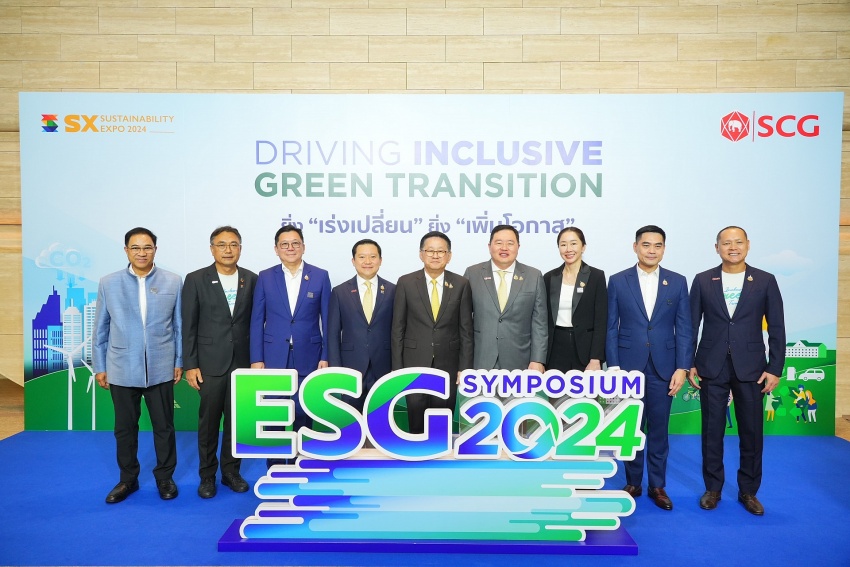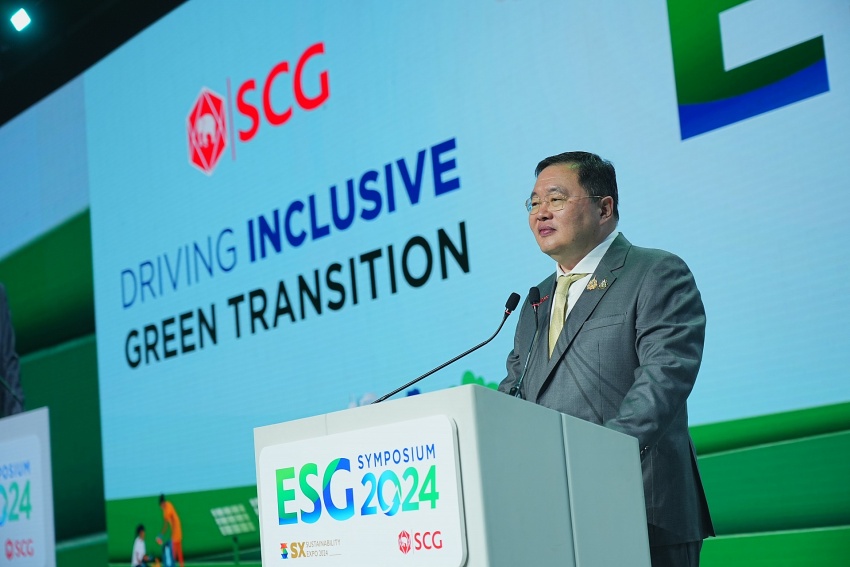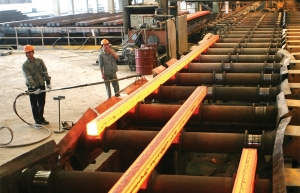Accelerating transition to low-carbon society
The collaboration of over 3,500 representatives from the government, private sector, and civil society at the ESG Symposium 2024 is ready to push forward the proposals to accelerate transition towards a low-carbon society, enhancing opportunities for a better quality of life, economic growth, and environmental sustainability.
The plan emphasises four key approaches: unlocking legal and regulatory barriers, promoting access to green finance, developing technology and infrastructure, and strengthening small and medium-size enterprises’ adaptability and capability.
 |
Prasert Jantararuangthong, Deputy Prime Minister of Thailand and minister of Digital Economy and Society said, “If all parties collaborate under the ESG strategy, which focuses on creating an economy alongside balanced social and environmental governance with transparency, following the philosophy of sufficiency economy and the United Nations' sustainable development goals, we can work together to make the world a better place again."
"We also aim to position Thailand as the ASEAN centre for carbon credit trading through the Thai Stock Exchange, creating a new form of energy security for domestic consumption and energy exports within ASEAN,” DPM Jantararuangthong said. “Please rest assured that Thailand is ready to tackle the environmental crisis. The government has incorporated this issue into its policies and outlined the Nationally Determined Contribution roadmap for greenhouse gas reduction, ensuring that all sectors can work together in an integrated manner.”
At the symposium, SCG declared that they are ready to act as a mentor, providing support and serving as a liaison to foster cooperation between various sectors.
Thammasak Sethaudom, president and CEO of SCG said, “ESG symposium 2024 is where key recommendations were compiled and presented to the government to expedite implementation through transitioning to clean energy while promoting a circular economy and utilising the Saraburi Sandbox, Thailand’s first low-carbon model city, as a pilot area to address policy, industrial system, and green infrastructure challenges while ensuring no one is left behind. This will create opportunities to expand the model to other provinces nationwide in the future.”
 |
| Thammasak Sethaudom, president and CEO of SCG speech at the symposium |
Efforts should focus on developing the workforce’s knowledge and understanding of clean energy to reduce costs. Promoting the adoption of innovations and technologies, such as AI and automation, will help enhance SME competitiveness. Additionally, domestic agencies should be established to certify such standards, helping to reduce the costs associated with carbon credits.
“This initiative serves as a testing ground, incorporating public-private-people partnership to implement the four proposals to create low-carbon city in a real-world setting. This approach will help identify opportunities, limitations, and solutions. The government’s promotion of decentralising decision-making and operations to local agencies will reduce procedural steps and ambiguities in project implementation, accelerating progress across all fronts,” said Thammasak.
 | Carbon market pilot around the corner The local authorities are on track to complete a carbon credit market development scheme in Vietnam, which is careful preparation for establishing a pilot carbon trading platform from next year. |
 | North Hanoi Smart City strives to become first carbon-neutral urban area Property development players have signed a deal to help make North Hanoi Smart City the first carbon-neutral urban area in Vietnam. |
 | SCG launches its first SCG Low Carbon Super Cement in Vietnam SCG, ASEAN's leading conglomerate, has announced the launch of SCG Low Carbon Super Cement in Vietnam to contribute to the Vietnamese target of net zero by 2050. |
What the stars mean:
★ Poor ★ ★ Promising ★★★ Good ★★★★ Very good ★★★★★ Exceptional
 Tag:
Tag:
Related Contents
Latest News
More News
- Trung Nam-Sideros River consortium wins bid for LNG venture (January 30, 2026 | 11:16)
- Vietnam moves towards market-based fuel management with E10 rollout (January 30, 2026 | 11:10)
- Envision Energy, REE Group partner on 128MW wind projects (January 30, 2026 | 10:58)
- Vingroup consults on carbon credits for electric vehicle charging network (January 28, 2026 | 11:04)
- Bac Ai Pumped Storage Hydropower Plant to enter peak construction phase (January 27, 2026 | 08:00)
- ASEAN could scale up sustainable aviation fuel by 2050 (January 24, 2026 | 10:19)
- 64,000 hectares of sea allocated for offshore wind surveys (January 22, 2026 | 20:23)
- EVN secures financing for Quang Trach II LNG power plant (January 17, 2026 | 15:55)
- PC1 teams up with DENZAI on regional wind projects (January 16, 2026 | 21:18)
- Innovation and ESG practices drive green transition in the digital era (January 16, 2026 | 16:51)





















 Mobile Version
Mobile Version